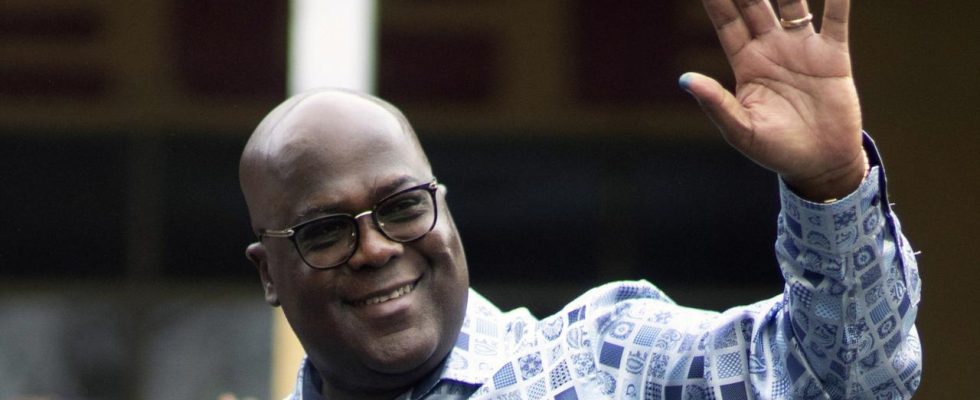The presidential election in the Democratic Republic of Congo was characterized by chaos and mishaps, now there are preliminary results. Accordingly, incumbent Tshisekedi won clearly. The opposition does not want to recognize the result.
According to the preliminary results, incumbent Félix Tshisekedi clearly prevailed in the presidential election in the Democratic Republic of Congo. As the electoral commission announced, the politician, who is considered pro-Western, received 13.2 million votes. That is 73.3 percent of the votes cast.
Nobel Peace Prize winner knocked off
According to the electoral commission, businessman Moise Katumbi came in second with 18 percent of the vote, followed by Martin Fayulu, who received five percent of the vote. Nobel Peace Prize winner Denis Mukwege received less than one percent of the vote.
Around 44 million people were called to vote, and around 18 million of them voted. The voter turnout was more than 40 percent.
The preliminary results will now be submitted to the Constitutional Court of Africa’s second-largest country for confirmation, top electoral official Denis Kadima said.
Opposition does not want to recognize the result
Tshisekedi was given the best chance in the election – also because the opposition had not managed to agree on a common candidate. At the beginning of his first term in office, he announced that he wanted to transform the resource-rich country into an “African Germany”.
The opposition and civil society groups called for a repeat of the election, which began on December 20 and was extended due to numerous glitches. Katumbi, who was considered the most promising opponent, and eight other candidates criticized irregularities in the election at a joint appearance and called for new elections with an “independent electoral commission”. They declared that they did not want to recognize the results of the electoral commission. Demonstrations were expected in the capital Kinshasa as well as in a number of other cities, especially in the east of the country.
Members of the national parliament and regional parliaments in the country’s provinces as well as local representatives were also elected. However, in many polling stations it was not possible to vote on the actual election day due to missing voter lists, defective voting machines or other problems, so the vote had to be extended at short notice and voting took place on several days.

